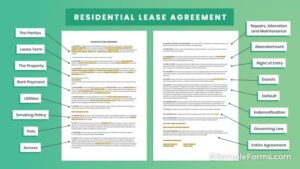
With Home equity loan benefits at the forefront, imagine your home transforming into a treasure chest overflowing with cash, just waiting for you to unleash its potential! Picture this: instead of a fairy godmother, it’s your equity that grants you financial wish after wish, whether it’s funding a dream vacation, consolidating pesky debts, or sprucing up your living space. It’s like having your cake and eating it too, but with fewer calories and more financial gains.
Home equity loans work by letting you borrow against the value you’ve built up in your home, essentially turning your bricks and mortar into a golden ticket. Applying is as easy as pie (well, maybe a little more paperwork involved) but understanding the importance of property valuation is crucial, as it determines just how much you can borrow. So, buckle up as we delve into the juicy benefits that can turn your home into your personal ATM!
Understanding Home Equity Loans
Home equity loans are like the secret stash of cash hidden beneath the floorboards of your home, except they’re entirely legal and, thankfully, a lot easier to access. They allow homeowners to tap into the equity of their property, converting it into cash for various uses, such as home renovations, debt consolidation, or even that dream vacation to Bali. Let’s dive deeper into how these loans work and what makes them tick!Home equity loans function by borrowing against the value of your home.
Essentially, if your house is worth more than the amount you owe on your mortgage, the difference is your home equity. When you apply for a home equity loan, lenders assess your equity to determine how much you can borrow. The process generally involves submitting an application, providing documentation of your income, credit score, and the amount of equity you have.
After reviewing this information, the lender will evaluate your property’s value, which plays a crucial role in the loan approval process.
Application Process for Home Equity Loans
The application process for a home equity loan may feel like a trip to the DMV—tedious but essential. Here’s a breakdown of the steps involved:
1. Assess Your Equity
Determine how much equity you have in your home. A good rule of thumb is to look for at least 15-20% equity to increase your chances of getting a favorable loan.
2. Check Your Credit Score
A solid credit score can make you the apple of the lender’s eye! Aim for a score above 620, as this will enhance your likelihood of approval and potentially lower interest rates.
3. Gather Documentation
Prepare your financial documents like tax returns, pay stubs, and bank statements. It’s like gathering your report card before a big meeting with the principal.
4. Apply
Complete your application either online or in person. The lender will review your information while you sit eagerly, wondering if you’ll be off to Hawaii or just back to your usual couch.
5. Property Appraisal
The lender will schedule an appraisal to confirm your home’s value. Think of the appraiser as the house’s personal trainer, evaluating every nook and cranny.
6. Closing
Once approved, you’ll meet for closing, where the magical exchange of signatures occurs, and voila—you have your loan!
Importance of Property Valuation
Property valuation is the cornerstone of securing a home equity loan. It’s like the bouncer at a club—if your home doesn’t meet the right criteria, good luck getting in. The valuation determines how much you can borrow based on your home’s current market value. A thorough appraisal can significantly impact your loan amount and terms. If your home has skyrocketed in value, you might be able to unlock more cash than you anticipated.
Here’s why property valuation is crucial:
Determines Loan Amount
The higher your property value, the more equity you can access, ensuring your financial dreams don’t just stay dreams.
Influences Interest Rates
A well-valued home often leads to better interest rates. Lenders love a good property, and they’re willing to offer you a better deal for it.
Protects Lender’s Investment
Since lenders are putting their money on the line, they need assurance that your property is worth what you’re borrowing against it. Valuation protects their investment and your future.In summary, home equity loans can be a fantastic tool for homeowners looking to leverage their property for financial freedom. Just remember, with great equity comes great responsibility! Always consider the terms and your ability to repay to ensure you’re making a wise financial choice.
Benefits of Home Equity Loans

Home equity loans can feel like a warm hug from your house, giving you a cozy financial boost while allowing you to keep living in your very own castle. With such a delightful concoction of benefits brewing, it’s time to dive into the nitty-gritty of why these loans might just become your best fiscal friend.Home equity loans are often lauded for their financial advantages, particularly when it comes to interest rates.
Unlike personal loans or credit cards that can feel more like a game of financial dodgeball—keeping you on your toes with their higher interest rates—home equity loans generally come with a lower interest tag. This can mean lower monthly payments, leaving you with a few extra bucks for that well-deserved pizza on Friday night!
Comparison of Home Equity Loans with Other Loan Types
When considering all your borrowing options, it’s crucial to compare the benefits and costs. Below is a handy comparison table that breaks down the differences between home equity loans, personal loans, and credit cards.
| Loan Type | Average Interest Rate | Loan Term | Best For |
|---|---|---|---|
| Home Equity Loan | 3% – 7% | 5 – 30 years | Major expenses (home renovation, education) |
| Personal Loan | 6% – 36% | 1 – 7 years | Personal needs (vacation, medical bills) |
| Credit Cards | 15% – 25% | Revolving | Everyday purchases |
In essence, the lower interest rates found in home equity loans can provide you with significant savings over time compared to the more expensive alternatives. This can translate to more financial flexibility, allowing you to allocate funds towards other projects or your favorite hobbies—like collecting vintage action figures or finally taking that salsa dancing class!
Home equity loans can also serve as a tool for debt consolidation, allowing you to roll multiple high-interest debts into a single, lower-interest payment.
Utilizing a home equity loan for debt consolidation can be a game-changer for your credit score. By paying off high-interest debts, you can lower your credit utilization ratio, which could give your score a nice little boost. Imagine knocking out those pesky credit card bills and enjoying the satisfaction of financial freedom as you sip your coffee with a smile, looking at all those “Paid in Full” stamps on your statements.
Plus, fewer bills mean less stress—it’s like decluttering your mind while decluttering your wallet!In summary, home equity loans are not just about accessing cash; they’re a strategic financial move that can lead to lower interest rates, easier management of debts, and ultimately pave the way for a brighter financial future. So, if your house is looking like a treasure chest, it might just be time to unlock its potential!
Practical Considerations and Alternatives
Navigating the world of home equity loans can feel like a rollercoaster ride—exciting yet a little terrifying, especially when looking down at the risks involved. While home equity loans offer fantastic benefits, it’s essential to tread carefully, ensuring you don’t plummet into financial chaos. Let’s explore the practical considerations and some charming alternatives that could save you from sleepless nights!
Risks and Mitigation Strategies
Home equity loans come with their fair share of risks, resembling that friend who insists on skydiving without a parachute. One primary risk is the potential for foreclosure. If you default on the loan, your lender can snatch your house quicker than you can say “oops.” To mitigate these risks, consider the following strategies:
- Thorough Budgeting: Always assess your financial stability before diving in. Create a budget that accounts for your monthly expenses, including the loan payment.
- Fixed Rates vs. Variable Rates: Opt for a fixed-rate loan to keep your payments consistent over time. Variable rates can fluctuate like a pendulum, leading to unexpected financial surprises.
- Emergency Funds: Build a safety net. Experts recommend having at least three to six months’ worth of living expenses saved. It’s like a financial life jacket.
“Risk is like a diet soda—seems harmless until you realize it’s not so refreshing after all.”
Using Home Equity Loans for Home Improvements
Home equity loans can be a fantastic tool for funding home improvements, potentially boosting your property value and making your neighbors green with envy. However, not all renovations are created equal when it comes to return on investment (ROI). Here are some effective strategies:
- Kitchen Remodels: A modern kitchen can yield a return of 70-80% of your investment. It’s the heart of the home—make it beat beautifully!
- Bathroom Updates: A well-done bathroom remodel can return about 60-70%. People love a clean, shiny space where they can unwind with a rubber ducky.
- Curb Appeal Enhancements: Boosting your home’s exterior—like a fresh coat of paint or landscaping—can yield up to 100% ROI. First impressions matter, even in real estate!
“Investing in your home is like giving it a glow-up—it’s all about the transformation!”
Alternatives to Home Equity Loans
While home equity loans are hot commodities, there are alternatives that may suit your financial needs better, ensuring the only thing you lose is the weight of debt, not your home! Let’s delve into a couple of these options:
- Cash-Out Refinancing: This involves refinancing your mortgage for more than you owe and taking the difference in cash. It can lead to a lower interest rate, but beware of the longer loan terms.
- Personal Loans: Unsecured personal loans can be a convenient alternative. They don’t require collateral, but they usually come with higher interest rates than home equity loans. Consider it the fast food of loans—quick satisfaction but potentially unhealthy long-term.
- Government Programs: Some programs, like FHA 203(k) loans, assist with home improvements specifically. While they offer financial relief, they come with specific eligibility requirements, akin to getting into an exclusive club.
“Choose your loan wisely, just like choosing your dessert—don’t go for the empty calories!”
Last Word

In a nutshell, home equity loans are like a superhero sidekick for your finances, swooping in to save the day when expenses loom large! With lower interest rates and flexible uses, they can help you tackle debt, finance renovations, or even fund the wedding of your dreams without sending your budget to the doghouse. Remember, though, with great power comes great responsibility, so weigh the risks and rewards wisely.
Now go forth, brave homeowner, and wield your equity like the financial wizard you are!
Questions Often Asked
What is the typical interest rate for home equity loans?
Interest rates can vary widely based on market conditions, credit scores, and lender policies, often ranging from 3% to 8%.
How long does it take to get approved for a home equity loan?
Approval times can vary, but typically you can expect anywhere from a few days to a few weeks, depending on the lender and your financial situation.
Can I use a home equity loan to pay for college?
Absolutely! Home equity loans can be used for education expenses, making them a flexible option for funding college tuition.
What happens if I can’t repay my home equity loan?
If you can’t repay, the lender may foreclose on your home, so it’s crucial to ensure you can manage the repayment comfortably before borrowing.
Are home equity loans tax-deductible?
In many cases, yes! The interest on a home equity loan may be tax-deductible if used to buy, build, or substantially improve the home, but consult a tax professional for specifics.






